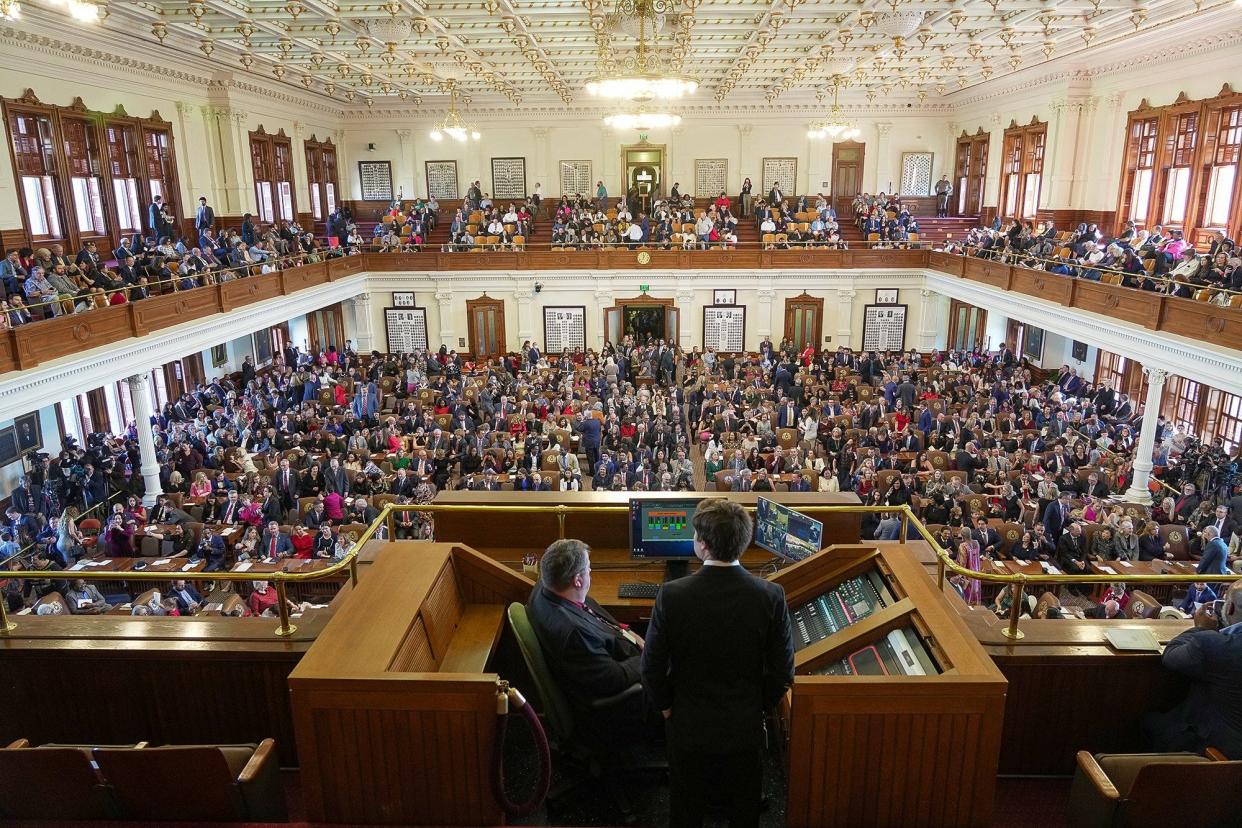Lawmaker calls to abolish Texas Education Agency. Here's what experts say could happen.

A Texas lawmaker's recent call to dismantle the Texas Education Agency could reflect a growing discontent with the state office in charge of overseeing primary and secondary public schooling.
While education policy experts agree that disbanding the agency is unrealistic at best, the call — which comes during a primary election season — speaks more about increasingly bipartisan conversations at the state level about reforming education policy, even if lawmakers haven't yet agreed on solutions.
In a Jan. 25 letter, Rep. Glenn Rogers, R-Mineral Wells, noted he plans to file legislation in the 2025 session to eliminate the TEA. He railed against the state’s standardized test, called the State of Texas Assessments of Academic Readiness, and the agency’s increasing budget.
“The edu-crat crowd at the TEA has limited experience in actual classroom settings,” Rogers wrote in the letter. “And yet, they put themselves forward as experts for what our kids need. In reality, we know that parents first, followed by teachers and local elected officials, are in a much better position to determine the educational needs of our students.”
Rogers is facing a GOP primary challenge by Mike Olcott, who has gained Gov. Greg Abbott's endorsement. Rogers is among several Texas House Republicans who drew Abbott’s ire after they joined Democrats in opposing a "school choice" program, which would use public money to help pay for students’ private school tuition and other costs.
Rogers didn’t return several American-Statesman requests for comment. TEA staff declined to comment.
Eliminating the TEA is farfetched if not impossible, said David DeMatthews, a University of Texas professor of education policy.
The agency conducts federally required duties, such as distributing federal funds, and tracks data on student outcomes, special education services and literacy.
“If there was no TEA, it would be virtually impossible for 1,200 school districts, individually, without any oversight or support, to comply with all the mandates,” DeMatthews said. “It's a silly idea.”
Lawmakers do regularly review state agencies, and the TEA's next evaluation is scheduled for 2029.
However, Rogers’ complaints against the TEA reflect a growing discussion about reforming the agency, said Monty Exter, Association of Texas Professional Educators director of government relations.
On the one hand, many Texans, especially those who identify as Republicans, tend to have a distrust of large administrations, he said. And local communities and schools often feel they best know their students’ needs.
“I think most of them feel if TEA comes in and tries to do this standardized approach at the local level, they cause more problems than they solve,” Exter said.
A complete overhaul of the education system isn’t unheard of.
In 1995, the Legislature went through a lengthy and comprehensive redesign of the TEA, revising and writing new codes, said HD Chambers, executive director of the Texas School Alliance, which represents 46 large school districts.
“It might be time for our elected leaders to take a look at the education code or a significant portion of the education code and perhaps look at a rewrite of it,” Chambers said.
Testing — one of the agency’s most prominent programs — has garnered significant backlash in recent years, he said.
In August, several school districts filed a lawsuit that drew about 100 other districts’ support alleging that the TEA had unfairly changed the rubric for their accountability. The agency assigns districts an A-F rating based on how students perform on statewide standardized testing, how much students grow academically and other factors.
More: Texas superintendents applaud court decision to halt A-F school accountability ratings
A judge in October halted the TEA’s release of the ratings, but the case is still tied up in appeals.
Lawmakers from both parties have also argued that the state’s system for testing students and keeping schools accountable needs to be overhauled.
In a comprehensive report from a House committee that met in July, lawmakers suggested revising the accountability system, along with numerous other programmatic and financial changes meant to improve education.
More: Texas House panel signals student success, school choice to top education special session
"There's a bipartisan commonality there," Exter said. "They don’t agree on the solution, but they recognize there's an issue."
This article originally appeared on Austin American-Statesman: Texas schools: Lawmaker says abolish TEA. Education experts weigh in.
